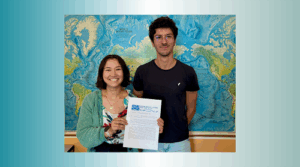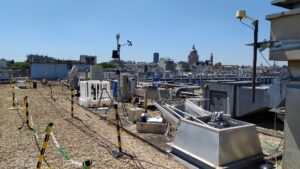Séminaire
Forests in the Earth System
Benjamin Quesada (Universidad del Rosario)
Séminaire du LGENS par Benjamin Quesada (Universidad del Rosario).
Description
Approximately 30 to 50% of the Earth’s land surface has undergone significant alterations due to human activities. The conversion of natural ecosystems into agricultural land and pastures, predominantly through deforestation, has contributed to about one-third of the total carbon emissions caused by human actions since 1850.
Changes in vegetation cover caused by human activity, particularly in tropical regions, have wide-ranging impacts on Earth’s energy balance, climate patterns, hydrological systems, and carbon levels. However, recent comprehensive scientific assessments (such as the IPCC AR5/6 and IPCC SRCCL) indicate limited consensus and insufficient evidence among studies that have quantified the overall effects of realistic changes in vegetation cover on climate, hydrology, and carbon dynamics.
At present, Earth System Models (ESMs) provide the most advanced means of projecting these impacts. I show that ESMs successfully simulate coherent and reliable relationships between climate, environment, and vegetation changes. Under business-as-usual scenarios, alterations in tropical vegetation cover significantly influence hydrological patterns (e.g., monsoon precipitation), extreme weather events (e.g., heatwave, droughts), land carbon storage, and greening projections, particularly at regional and local scales.
While international policy discussions primarily consider the biogeochemical effects of human-induced changes in vegetation cover, it is crucial to account for the biophysical impacts in order to accurately evaluate the potential for land-based mitigation. ESMs still require substantial enhancements in modeling vegetation structure and function, as well as rigorous validation through model-data comparisons.
Informations supplémentaires
Mardi 4 juillet, à 11h
ENS – Salle Claude Froidevaux – E314 • 24, rue Lhomond 75005






